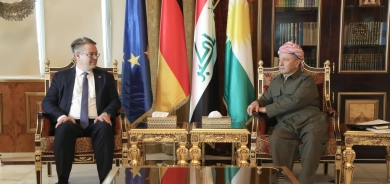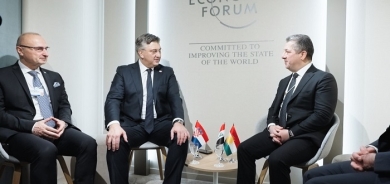Iraqi Kurdistan: A New Regional Oil Hub

Control of oil production in northern Iraq has repeatedly led to tensions with Iraq’s national government headed by Prime Minister Nouri al Maliki. Those tensions have been especially pronounced with respect to two issues. One is the political status of Kirkuk and its environs. A referendum on the status of that area was supposed to be held years ago, but Maliki’s regime has repeatedly found reasons to postpone any vote. The underlying motive is clear. In a free and fair election, Kirkuk voters would almost certainly choose to join the Kurdistan region. That result, in turn, would give the KRG control over even larger oil reserves than it has now. In addition to the substantial loss of revenues to Baghdad, both Iraqi and Turkish officials worried that the KRG would use the additional wealth to consolidate its self rule, and become a de facto independent country.
The other controversy in which oil has played a major role involves control over the production and export of that product elsewhere in Iraqi Kurdistan. The authorities in Baghdad have long insisted that all contracts with foreign energy companies must be approved by the national government, not the KRG. Erbil has with equal determination resisted that attempted economic and political power play. For years, the result has been an increasingly acrimonious stalemate over oil policy.
Recently, though, Baghdad appeared to adopt a new attitude regarding exports through Turkey. In mid-December, KRG National Resources Minister Ashti Hawrami welcomed that more cooperative tone. Just a month earlier, Baghdad had moved to block an agreement between Erbil and Ankara, still insisting that the national government was the only entity authorized to conclude such pacts. The December outcome appeared to be a classic compromise. The Maliki government lifted its long-standing demand on that point, but did receive commitments that Baghdad would be kept informed of the quantity and terms of all sales, that transactions would be at international market prices, and that substantial revenues would be channeled through the Iraq Development Fund in New York, as specified in previous UN Security Council resolutions.
The bottom line, though, is that Erbil now has a green light to conclude agreements with oil producers and pump large quantities of oil through a pipeline to Turkey and on to international markets through the port of Ceyhan on the Mediterranean Sea. The flow is already impressive, and it is forecast to reach some 400,000 barrels a day by the end of 2014. Hawrami is correct that those added oil exports “will reflect positively on the economy of the Kurdistan Region and Iraq as well as Turkey and the world market.”
The oil factor is a key reason why Kurdistan is becoming a prosperous economic player in the Middle East. That factor has already contributed to Baghdad’s more realistic, cooperative attitude toward Erbil. And it certainly has helped transform the relationship with Ankara. Turkish officials increasingly see Kurdistan as a stable, well-governed political entity—in marked contrast to the turmoil in the rest of Iraq, next door in Syria, and throughout much of the Middle East. A significant oil exporter with those characteristics is welcomed as an economic partner, regardless of any remaining disagreements between Ankara and Erbil on other issues.
Managed properly, the increased oil revenues can become the foundation for an even more prosperous Kurdistan. They can also serve to facilitate a more peaceful regional environment and to cement a growing, wide-ranging economic relationship with Turkey and other countries. That is all to the good.
The United States and the other Western powers need to recognize implications of Kurdistan’s emergence as a significant new oil exporter and economic dynamo in the Middle East. Washington’s policies, in particular, must catch up with the important diplomatic and commercial developments that have taken place. It is no longer sufficient, if it ever was, to see policy toward Kurdistan as merely one component of a larger policy toward Iraq. Kurdistan is now a crucial, distinct player and should be treated as such.
Ted Galen Carpenter, a senior fellow at the Cato Institute, is the author of nine books and more than 500 articles and policy studies on international affairs. He is also a member of the editorial board at Mediterranean Quarterly.

 Ted Galen Carpenter
Ted Galen Carpenter











